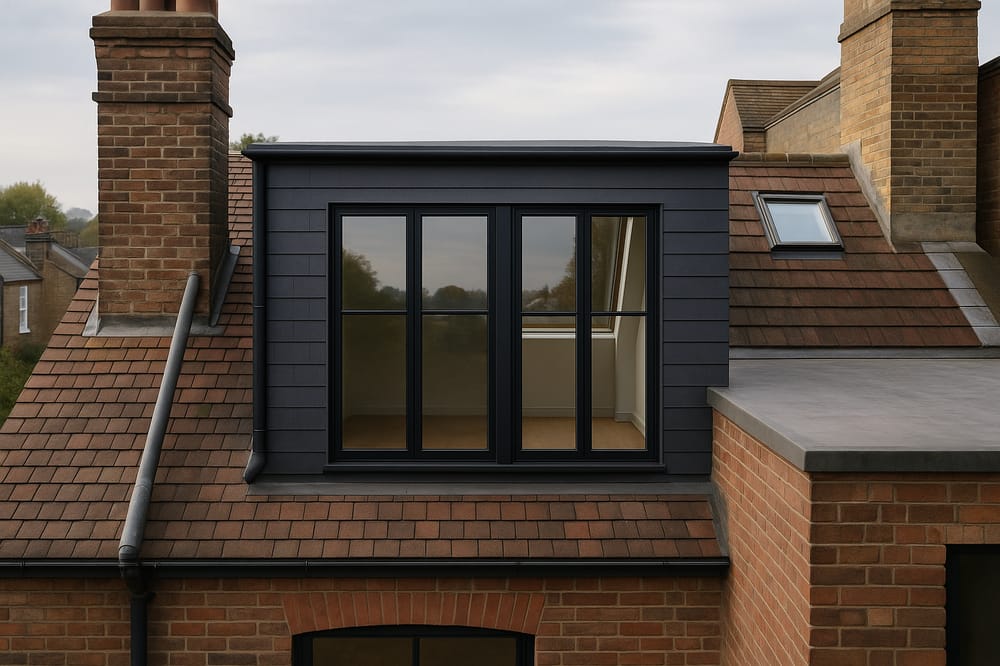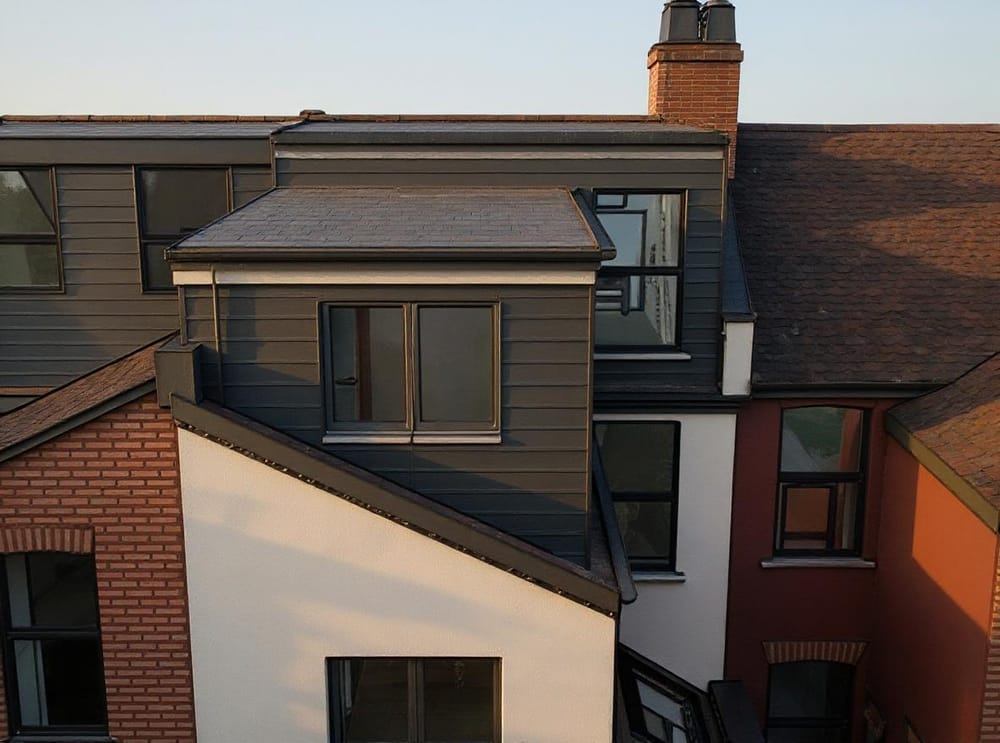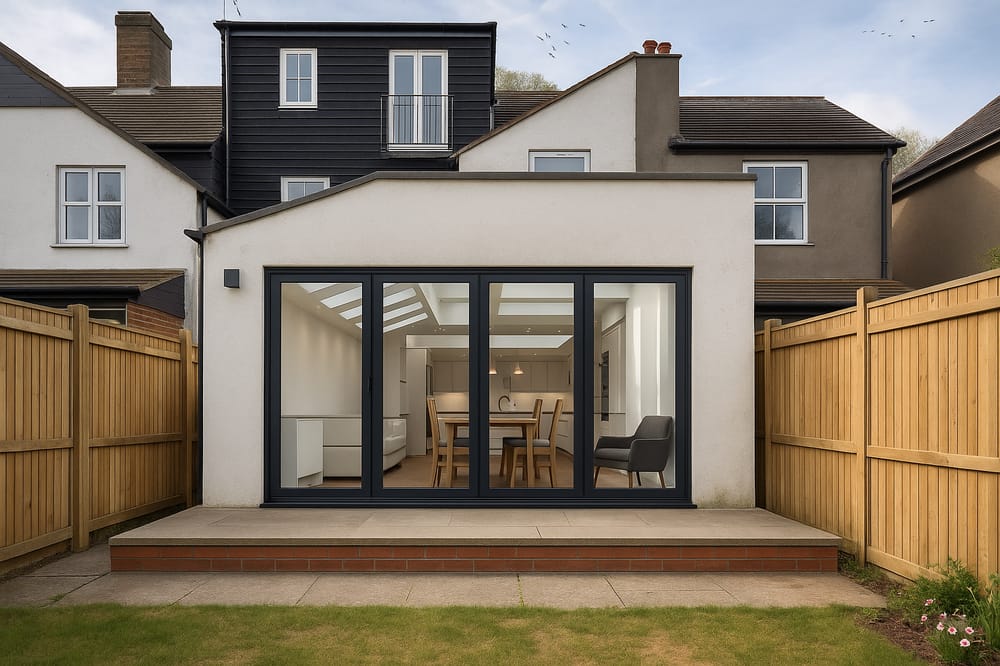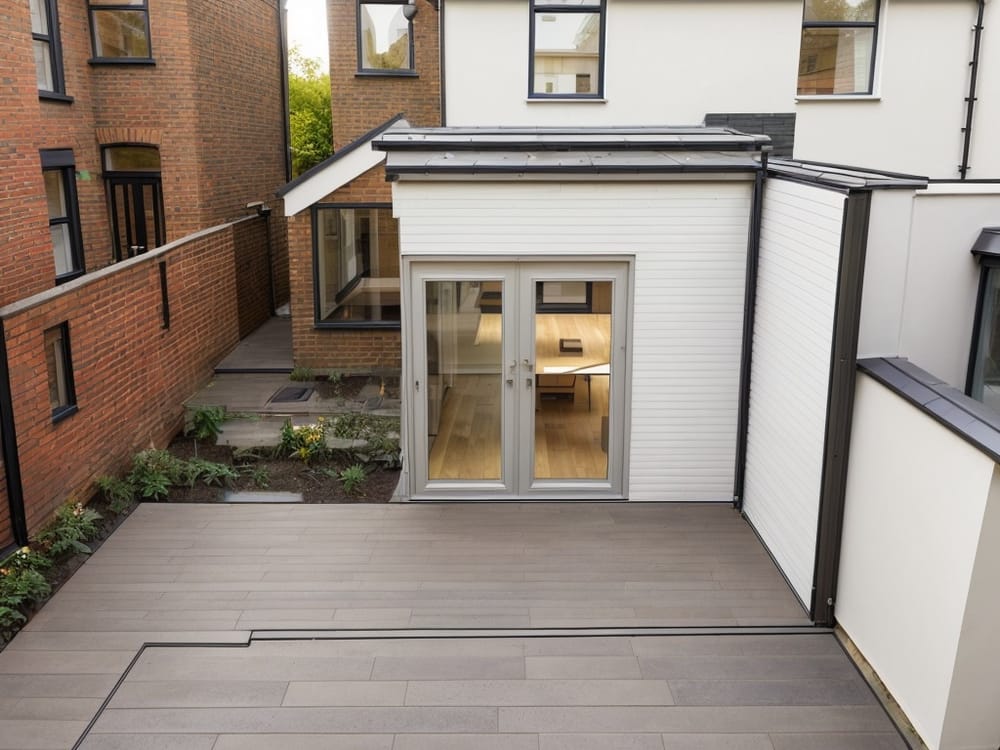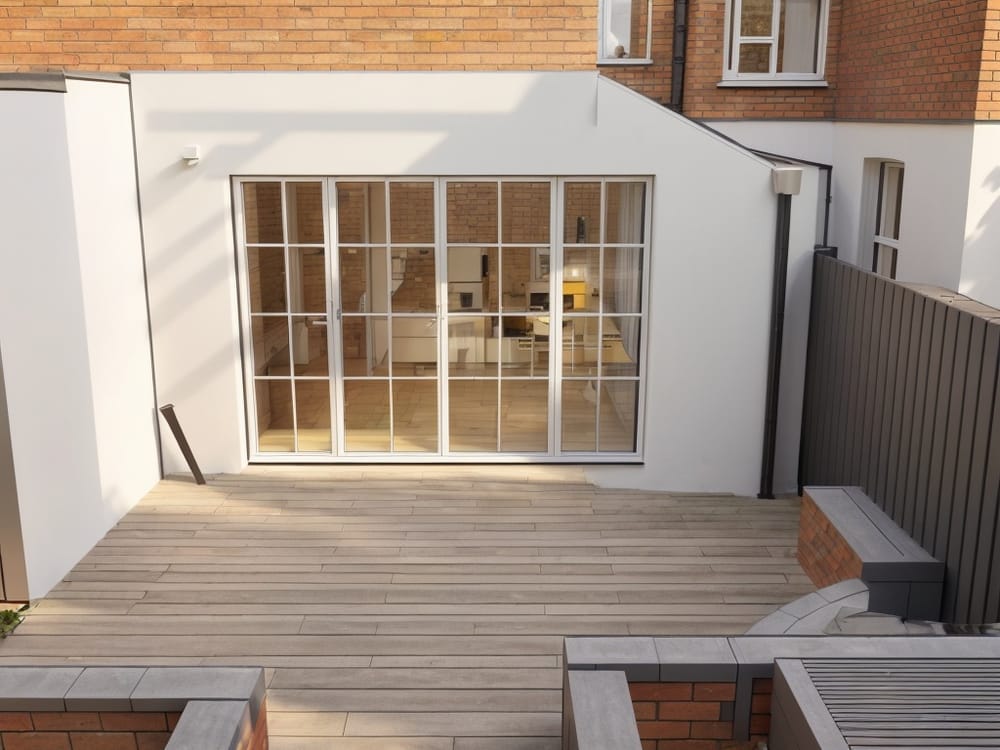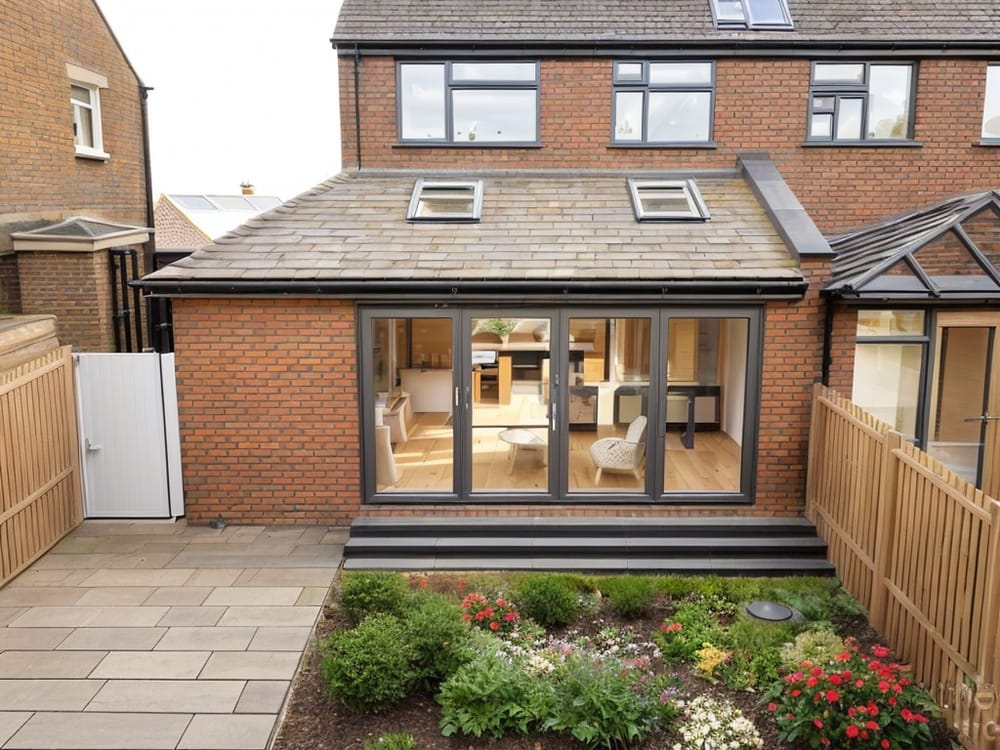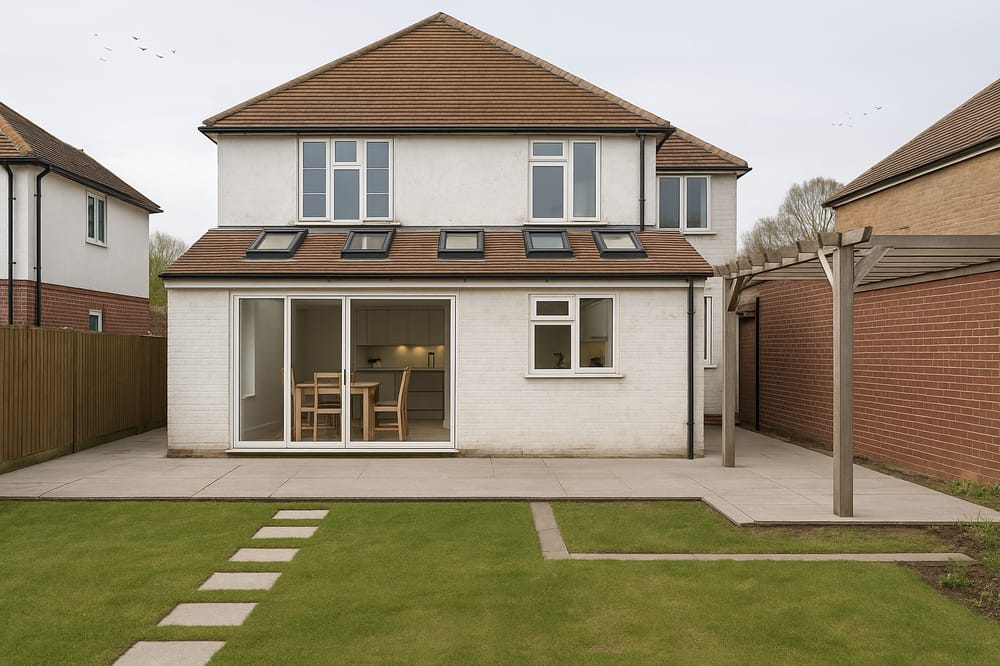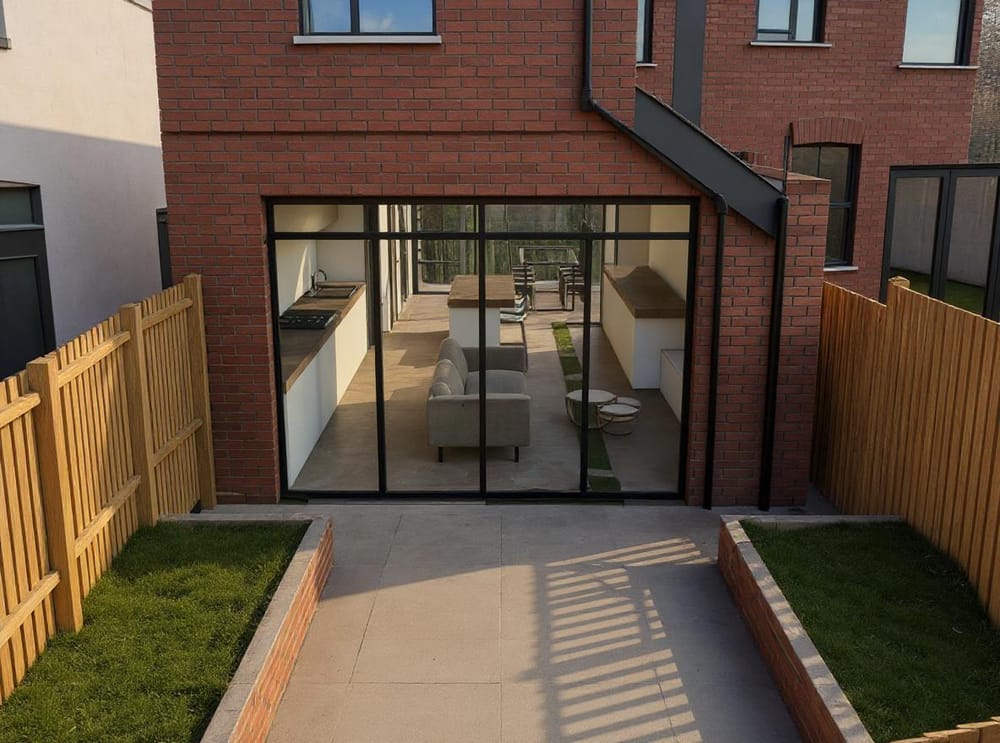A party wall agreement is, as it says on the tin, a legal agreement made between you and your neighbours regarding any building work occuring that affects either a shared wall, outbuilding, or boundary.
When do you need a party wall agreement?
Two months and before any work commences you need to serve notice to all legal owners of any building affected by your proposed build. If you have an architect, they’ll be able to notify you when/if this needs to happen. Under the Party Wall etc. Act 1996, neighbours have 14 days to respond.
If they give written consent during this time, you wouldn’t need a party wall surveyor and works can go on ahead. However, if they fail to reply or dissent, then you’ll need to commission a party wall agreement.
Surveyors and other companies will generally charge between £65-£100 to arrange a notice to be served on your behalf. Alternatively, you can draft your own using examples set out in the Party Wall booklet. If you're using Resi, we'll help advise on the best course of action. Or for more advice, check out our blog on how to serve a party wall notice.
What does a party wall agreement cover?
The agreement, or ‘award’ as it is also know, will cover three areas:
- How the proposed works will be carried out by the building party.
- A “schedule of condition”; basically a record of the adjoining properties condition prior to works starting, so in the event of a dispute over areas affected by the construction, this document, complete with photographs, provides clear evidence.
- What the project intends to create, supported by architectural drawings.
Most documents will use a template set out by the Royal Institution of Chartered Surveyors (RICS). The agreement will contain full details on both households concerned, as well as the surveyors involved. You may notice a third surveyor listed on the agreement, this isn’t a mistake. If a party wall agreement involves two surveyors, a third one is brought on board to manage any disputes, if they arise. More than likely, you’ll never have to engage with this silent surveyor.
Other things covered by your agreement…
- Working hours. Residential work must only take place on weekdays, 8am to 5:30pm.
- Property access for your surveyors.
- A timeline for completion and a time limit.
- Adjoining owner’s surveyor’s fee - yes, you have to cover their costs if you are the person completing the project.
- Protection against loss for the adjoining owner, provided by the one building.
- Proof the contractor is covered by public liability insurance.
Once the agreement has been witnessed and signed, both parties will have a 14 day period to appeal if either someone believes the agreement was improperly created.
Do I need a party wall surveyor?
If you've failed to recieve consent after serving a party wall notice, then you'll need to employee at least one party wall surveyor to manage the subsequent agreement.
After the end of your served notice, you must send a letter stating your neighbour should appoint a party wall surveyor within 10 days. During this period, both parties can agree to use the same surveyor. However, if this doesn’t happen within the suggested 10 day period (either because the other party refuses or they don’t respond), you’ll have to commission two party wall surveyors. Your neighbour will either pick their own or you’ll do it on their behalf if they don’t respond in time. You’ll also have to ensure they use a different surveying company than the one you’re assigning yourself.
Do I need a party wall agreement for an extension or loft conversion?
If you’re living in a semi-detached or terraced house you’ll share a wall with your neighbour - the party wall. Any extension or loft conversion that affects this wall will require a party wall notice to be served, and could therefore require a party wall agreement. You will also have to serve notice if you are proposing to excavate within 3 metres of a neighbouring building or completing structural works to the party wall, for example, removing a chimney.
A party wall could also include garden walls that have been built along a boundary - this is called the party fence wall.
If you’re unsure about the Party Wall etc. Act 1996, it would be worth getting an architect on board who will be able to advise on whether or not any shared boundaries will be affected. Luckily, at Resi, we provide free consultations for homeowners nationwide. If you'd like some tailored advice for your home, simply book a call with our team here.

